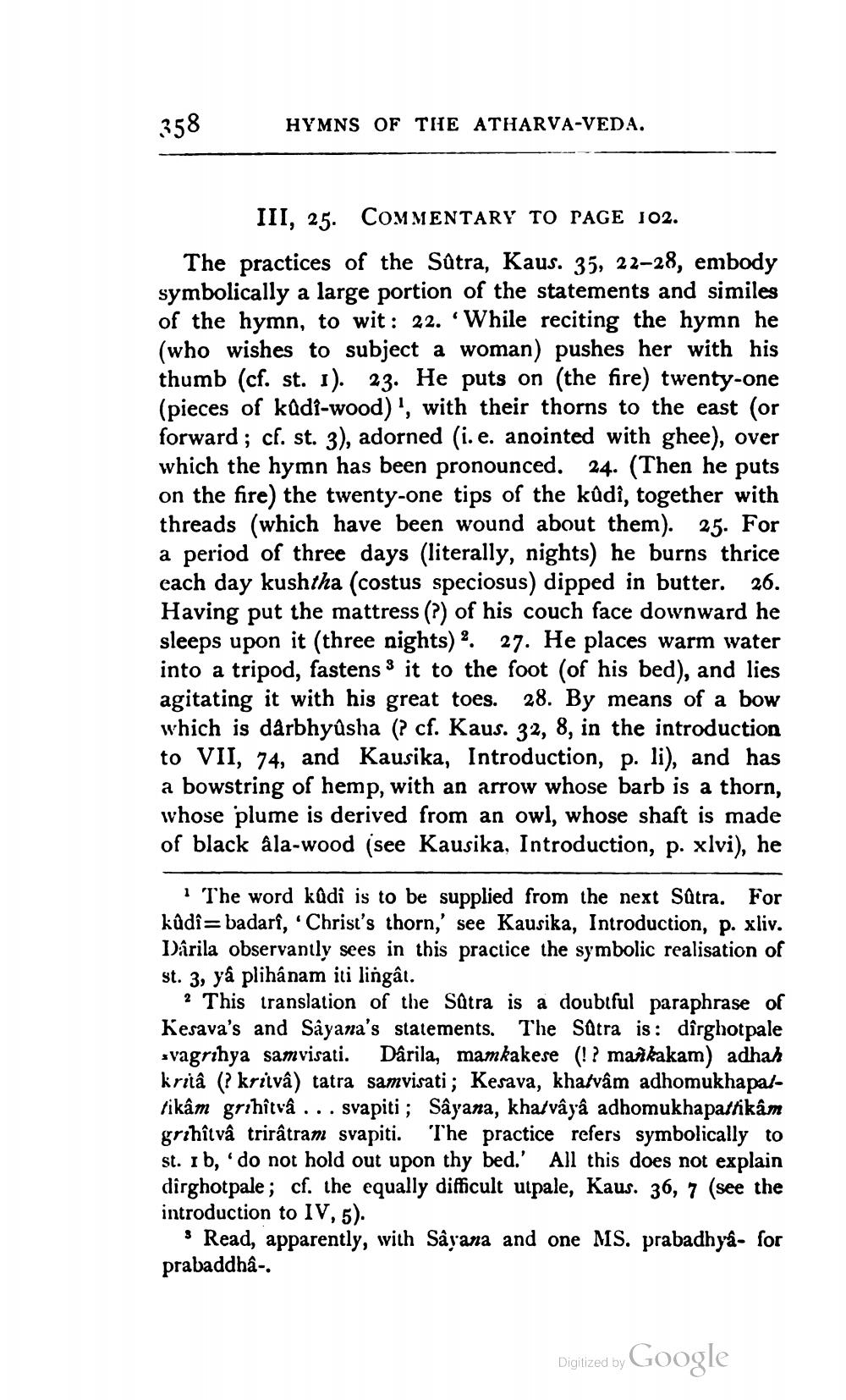________________
358
HYMNS OF THE ATHARVA-VEDA.
III, 25. COMMENTARY TO PAGE 102. The practices of the Satra, Kaus. 35, 22–28, embody symbolically a large portion of the statements and similes of the hymn, to wit: 22. 'While reciting the hymn he (who wishes to subject a woman) pushes her with his thumb (cf. st. 1). 23. He puts on (the fire) twenty-one (pieces of kadi-wood)', with their thorns to the east (or forward; cf. st. 3), adorned (i.e. anointed with ghee), over which the hymn has been pronounced. 24. (Then he puts on the fire) the twenty-one tips of the kûdi, together with threads (which have been wound about them). 25. For a period of three days (literally, nights) he burns thrice each day kushtha (costus speciosus) dipped in butter. 26. Having put the mattress (?) of his couch face downward he sleeps upon it (three nights) 2. 27. He places warm water into a tripod, fastens 3 it to the foot (of his bed), and lies agitating it with his great toes. 28. By means of a bow which is dårbhyûsha (? cf. Kaus. 32, 8, in the introduction to VII, 74, and Kausika, Introduction, p. li), and has a bowstring of hemp, with an arrow whose barb is a thorn, whose plume is derived from an owl, whose shaft is made of black âla-wood (see Kausika, Introduction, p. xlvi), he
The word kûdî is to be supplied from the next Sætra. For kûdî=badarí, Christ's thorn,' see Kausika, Introduction, p. xliv. Dârila observantly sees in this practice the symbolic realisation of st. 3, ya plihanam iti lingât.
? This translation of the Sätra is a doubtful paraphrase of Kesava's and Sảyana's statements. The Sätra is: dîrghotpale svagrihya samvisati. Darila, mamkakese (!? mañkakam) adhah kritâ (? krilvâ) tatra samvisati; Kesava, khatvam adhomukhapalrikâm grihîtva ... svapiti ; Sâyana, kha/vâyâ adhomukhapattikam grihît vâ trirâtram svapiti. The practice refers symbolically to st. I b, do not hold out upon thy bed.' All this does not explain dîrghotpale; cf. the equally difficult utpale, Kaus. 36, 7 (see the introduction to IV, 5).
Read, apparently, with Sâyana and one MS. prabadhya- for prabaddha-.
Diglized by Google
Digitized by




